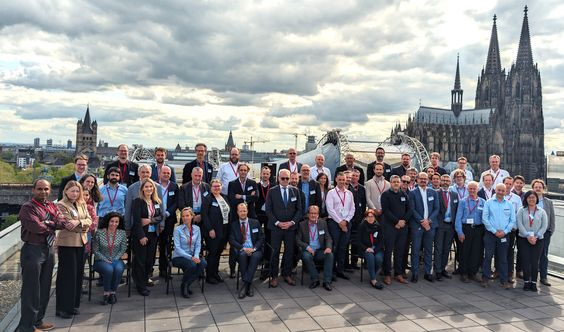(IN SHORT) The European Union Aviation Safety Agency (EASA) convened the first EU Aviation Fuel Stakeholders Forum on April 18-19, 2024, aiming to establish a network of European fuel stakeholders to enhance collaboration and address environmental challenges in aviation. One of the main goals is to explore the feasibility of reducing the aromatics and sulphur content in conventional jet fuels to mitigate aviation’s impact on climate through non-CO2 emissions. Led by Maria Rueda, EASA’s Strategy & Safety Management Director, the forum discussed the need for adjustments to conventional jet fuel specifications, recognizing the continued importance of fossil fuels alongside sustainable aviation fuels (SAF) in the aviation fuel mix. The forum stems from the “European body for jet fuel standards and safety certification” pilot project and sets ambitious objectives to propose effective requirements by the end of 2024 and foster long-term innovative solutions by the end of 2025. With participation from stakeholders across the aviation sector, the forum underscores the industry’s commitment to reducing its environmental footprint and advancing sustainable practices.
(PRESS RELEASE) Cologne, Germany, 2024-Apr-23— /Travel PR News/ — The European Union Aviation Safety Agency (EASA) hosted the first EU Aviation Fuel Stakeholders Forum on April 18-19, 2024. The event marked the launch of a network of European fuel stakeholders to strengthen cooperation in Europe, with the aspiration of optimising the jet fuel composition to respond to environmental challenges.
One priority is to examine the feasibility of lowering the aromatics and sulphur content of conventional jet fuels; this will support the mitigation of aviation’s impact on the environment, with a particular focus on the effects of non-CO2 emissions on climate. Another key objective of the EU Aviation Fuel Stakeholders Forum is to enable the development of long-term innovative solutions in the field of aviation fuels — in alignment with international stakeholders.
“The aviation sector is fully committed to decreasing its environmental footprint, and it is acting in many different areas (operational improvements, new technologies, alternative fuels, and fuel composition). Research has shown that fuel composition has a direct impact on the amount of non-CO2 emissions produced. These non-CO2 emissions and their impact on climate and local air quality are linked to the level of aromatics and sulphur present in the fuels”, said Maria Rueda, EASA’s Strategy & Safety Management Director. “Even with an increased usage of sustainable aviation fuels (SAF), fossil fuels will still have a considerable share in the aviation fuel mix in the coming decades. Therefore, it would be beneficial to consider adjustments to the conventional jet fuel specifications.”
The EU Aviation Fuel Stakeholders Forum derives from the “European body for jet fuel standards and safety certification” pilot project, which was tasked to EASA by the European Parliament.
This pilot project has set itself the following ambitious objectives:
- propose options for feasible and effective aromatics/sulphur requirements to minimise non-CO2 climate impacts, by the end of 2024; and
- foster long-term innovative solutions to significantly improve fuel quality through amendments to fuel specifications, by the end of 2025.
The first EU Aviation Fuels Forum was organised by EASA jointly with DG MOVE, and brought together around 60 stakeholders from fuel producers, refineries, aircraft and jet engine manufacturers, as well as academia. The next EU Aviation Fuels Forum is planned to take place in 2024/Q4.
Note to editors
About European Union Aviation Safety Agency – EASA
The European Union Aviation Safety Agency (EASA) is the centrepiece of the European Union’s strategy for aviation safety. Our mission is to promote and achieve the highest common standards of safety and environmental protection in civil aviation. Based in Cologne, the Agency employs experts and administrators from all over Europe.
Media Contact:
Janet Northcote
Head of Communication
European Union Aviation Safety Agency
Email: communications@easa.europa.eu
Source: EASA
###

